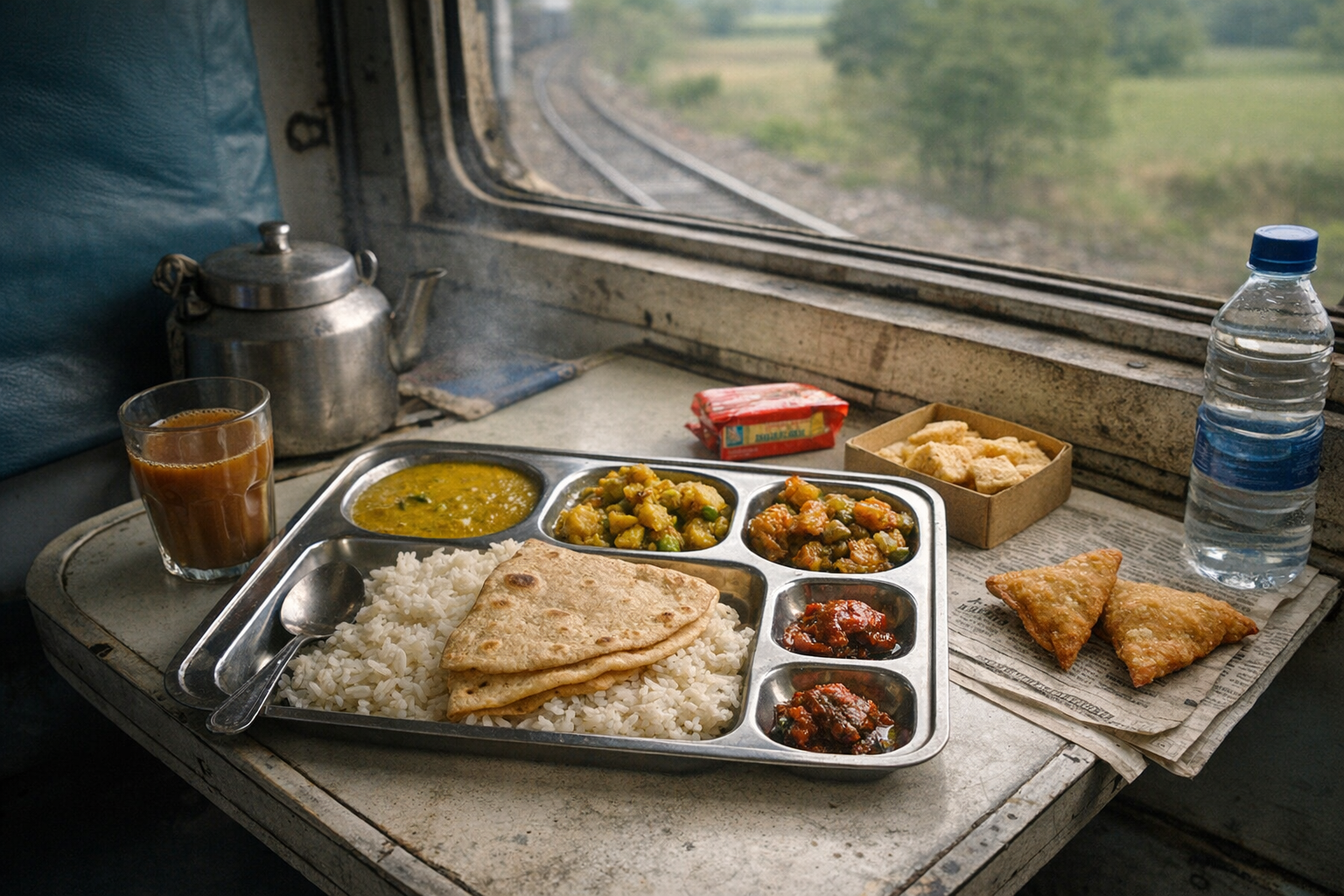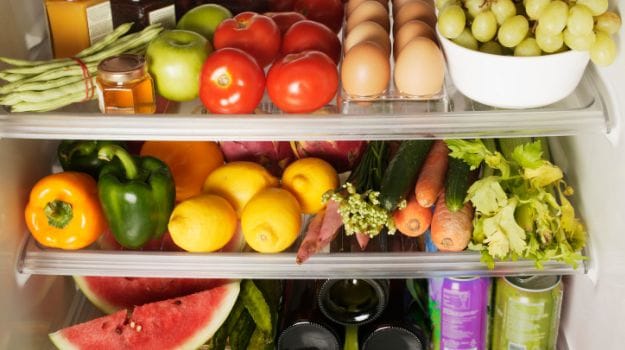For years I’ve stored onions in the kitchen drawer and tomatoes in the refrigerator. It works fine if I use them right away but it doesn’t always happen that way. Some of them hang around in there for longer than expected and end up being wasted. Not just that, how you store food can make a huge difference to how it tastes. With forever rising food prices, it’s a shame that half of your groceries should land up in the bin due to spoilage. Find out the secret to longer lasting food here.OnionsHere’s where you might have been wrong. Don't ever store onions in plastic bags. Lack of oxygen reduces their storage life. Onions will last longer when stored in a dark, dry and cool but not a very cold place. Wrap them in a newspaper or place them in paper bags with holes punched on them. Another thing to keep in mind, never store potatoes and onions together. Potatoes may emit certain gases that accelerate spoilage.
(19 Recipe Ideas for Leftover Onions)

BananasA simple trick to save bananas from rotting so quickly is to cover the crown (where all the stems are attached) with a plastic wrap. Bananas release a gas called ethylene which ripens the fruit. By covering the stem, you can prevent the gas from reaching to the remaining part of the banana. Most of this gas is released from the stem. You can separate the bunch and wrap them individually since more ripe bananas will release more gas which can cause others to ripen prematurely. Don’t detach the stem altogether that will also hasten browning.(Kitchen Hack: How to Prevent Fruits from Turning Brown)

TomatoesThe first thing to know is that you need to keep them cool and not cold. Most of us think that the best way to store fruits and vegetable is to keep them cold but sometimes your fridge can become a graveyard for many of your favourite foods. Unripe tomatoes should be kept at room temperature so as to allow them to develop more flavour and juiciness. Under extreme temperatures, they tend to lose their flavour. Once fully ripe, you can store them in the refrigerator in plastic bags but remember to leave them out for at least half an hour to bring them back to room temperature before using.

You’ll find this earthy spud in almost every kitchen, it’s just so versatile. But it's heartbreaking to see them sprout and get all mushy. They don’t need to be refrigerated, just keep them in net bags. If you place them in cold temperatures, it will cause the starch to convert into sugar. This may lead to discoloration on cooking. Keep them out of light and don’t wash before storing. Dampness accelerates spoilage.(How to Keep Your Greens Fresh)

CheeseCheese is one of the most loved foods in the world and you don’t want to ruin the wonderful flavour by storing them in plastic wraps. Wrapping it in plastic suffocates the flavour. You have to let it breathe without making it go dry. The best way to store is to use parchment paper. You can use tape to secure. Don’t wrap too tightly or too loosely. You can then place it in a partially sealed plastic bag to prevent it from drying out.You can also use aluminium foil to do away with plastic altogether. Try replacing the paper every time you unwrap, start fresh for longer results. Store it somewhere in the lower compartments of the refrigerator, freezing can degrade the smooth texture. Keep it where the temperature is consistent. You can rub the cut faces of cheese with olive oil or canola oil to prevent moulding.(10 Best Cheese Recipes)

SpicesCumin, coriander, garam masala, tumeric, black pepper, cinnamon - these are just few spices that we need to look after in our kitchen cupboard. Often, we take them for granted and leave them out on the cabinet where light can destroy their potency. Avoid using spices that taste bland and lack the alluring aroma. Light, air, heat and moisture are their enemies. You could store them in tin jars but make sure you seal them tightly and place them away from the stove.(Fennel, Fenugreek and Coriander: 3 Spices that You Thought Were Indian but Aren't)

LemonLemons are well-loved and used very frequently. How to keep them fresh and juicy for longer? Don’t just shove them in the refrigerator. Place them in a zip lock and keep them tightly sealed. Avoid leaving them out on the counter; they’ll dry out very quickly. Some suggest that you should keep them immersed in water to preserve the moistness.

(19 Recipe Ideas for Leftover Onions)
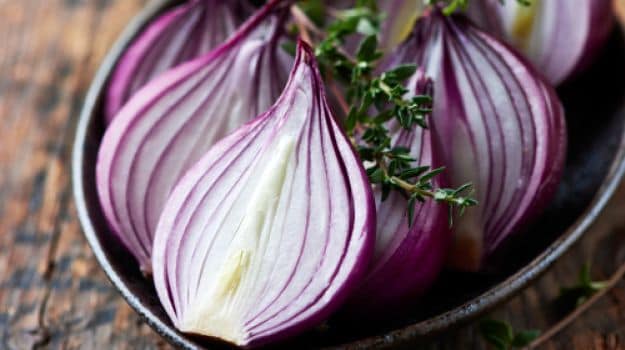
BananasA simple trick to save bananas from rotting so quickly is to cover the crown (where all the stems are attached) with a plastic wrap. Bananas release a gas called ethylene which ripens the fruit. By covering the stem, you can prevent the gas from reaching to the remaining part of the banana. Most of this gas is released from the stem. You can separate the bunch and wrap them individually since more ripe bananas will release more gas which can cause others to ripen prematurely. Don’t detach the stem altogether that will also hasten browning.(Kitchen Hack: How to Prevent Fruits from Turning Brown)

TomatoesThe first thing to know is that you need to keep them cool and not cold. Most of us think that the best way to store fruits and vegetable is to keep them cold but sometimes your fridge can become a graveyard for many of your favourite foods. Unripe tomatoes should be kept at room temperature so as to allow them to develop more flavour and juiciness. Under extreme temperatures, they tend to lose their flavour. Once fully ripe, you can store them in the refrigerator in plastic bags but remember to leave them out for at least half an hour to bring them back to room temperature before using.
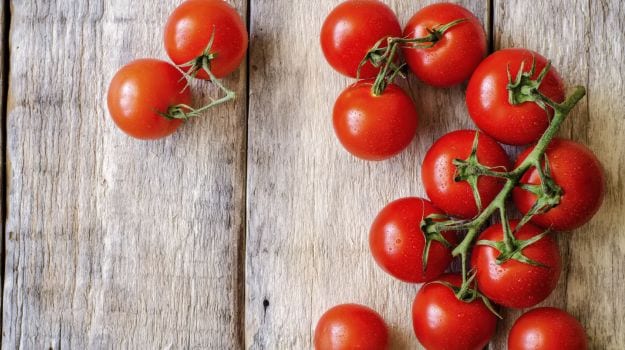
Potatoes
You’ll find this earthy spud in almost every kitchen, it’s just so versatile. But it's heartbreaking to see them sprout and get all mushy. They don’t need to be refrigerated, just keep them in net bags. If you place them in cold temperatures, it will cause the starch to convert into sugar. This may lead to discoloration on cooking. Keep them out of light and don’t wash before storing. Dampness accelerates spoilage.(How to Keep Your Greens Fresh)
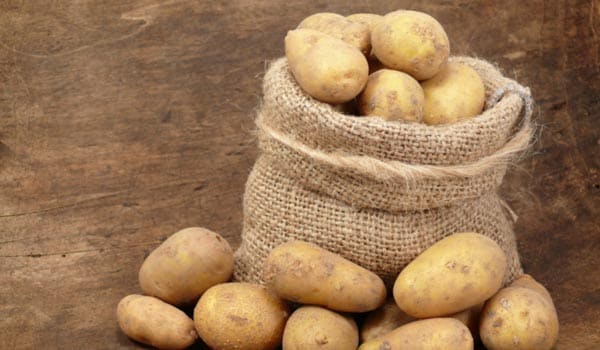
CheeseCheese is one of the most loved foods in the world and you don’t want to ruin the wonderful flavour by storing them in plastic wraps. Wrapping it in plastic suffocates the flavour. You have to let it breathe without making it go dry. The best way to store is to use parchment paper. You can use tape to secure. Don’t wrap too tightly or too loosely. You can then place it in a partially sealed plastic bag to prevent it from drying out.You can also use aluminium foil to do away with plastic altogether. Try replacing the paper every time you unwrap, start fresh for longer results. Store it somewhere in the lower compartments of the refrigerator, freezing can degrade the smooth texture. Keep it where the temperature is consistent. You can rub the cut faces of cheese with olive oil or canola oil to prevent moulding.(10 Best Cheese Recipes)
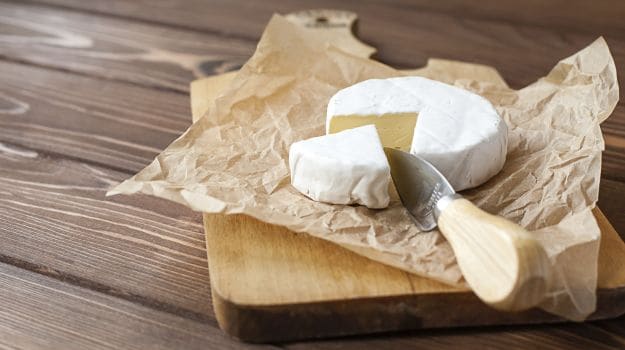
SpicesCumin, coriander, garam masala, tumeric, black pepper, cinnamon - these are just few spices that we need to look after in our kitchen cupboard. Often, we take them for granted and leave them out on the cabinet where light can destroy their potency. Avoid using spices that taste bland and lack the alluring aroma. Light, air, heat and moisture are their enemies. You could store them in tin jars but make sure you seal them tightly and place them away from the stove.(Fennel, Fenugreek and Coriander: 3 Spices that You Thought Were Indian but Aren't)

LemonLemons are well-loved and used very frequently. How to keep them fresh and juicy for longer? Don’t just shove them in the refrigerator. Place them in a zip lock and keep them tightly sealed. Avoid leaving them out on the counter; they’ll dry out very quickly. Some suggest that you should keep them immersed in water to preserve the moistness.

Advertisement


